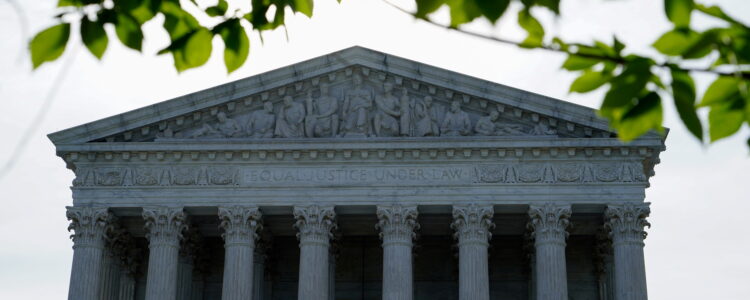
On November 1st, the U.S. Supreme Court heard oral arguments on two constitutional challenges to Texas’s Heartbeat Law (SB 8) on behalf of an abortion provider and the Biden administration. Arguing that Texas’s abortion ban undermines the Court’s holding in Roe v. Wade and the judicial process of review, challengers sought injunctions that would freeze the law, prevent Texas courts from hearing lawsuits under the Texas law, and permit Texas abortion clinics to perform abortions without the risk of a lawsuit.
As it currently stands, if an abortion doctor in Texas performs an abortion before a fetus’s heart begins beating in the sixth week, then the abortion doctor can be sued by any U.S. citizen for a fine of no less than $10,000. Since previability abortion bans have routinely been struck down by the Court due to Roe’s viability standard (which prevents states from enforcing laws that restrict postviability abortion procedures performed on fetuses after the 24th week of pregnancy), Texas legislators crafted SB 8 so citizens could protect preborn humans from abortions through lawsuits.
This so-called “private enforcement” law is believed to be impervious to the Court’s review because the Court cannot prevent states from passing laws, only from enforcing them—since private citizens enforce SB 8 through lawsuits, and the law actually states that no government actor can enforce it, it is believed that the law should be immune from review on procedural grounds.
Put plainly, the Court is considering whether it is constitutional for a state to empower its citizens to enforce an abortion ban and whether it sets a dangerous precedent. For instance, what if Illinois passed a law against advocating for fetal rights that allowed for a $10,000 reward, whereby a Planned Parenthood employee could win a $10,000 award against a pro-lifer who wrote an article in support of fetal rights? One wouldn’t imagine that lawsuit to actually go forward or be successful, as it would be violative of the First Amendment, but such a law could certainly have a chilling effect—just the knowledge that such a law is on the books could be enough to scare off pro-lifers, which is why an abortion provider and the Biden administration argue that SB 8 prevents women from utilizing their so-called right to abortion.
While the Court allowing the Texas law to go into effect was a tremendous sign that the Court might overturn Roe in the upcoming case Dobbs vs. Jackson Women’s Health, the Court ruling against Texas in granting the injunction on SB 8 would not have any bearing on whether or not the Court would overturn Roe. The two cases focus on entirely different legal and constitutional questions even though both are related to abortion.
